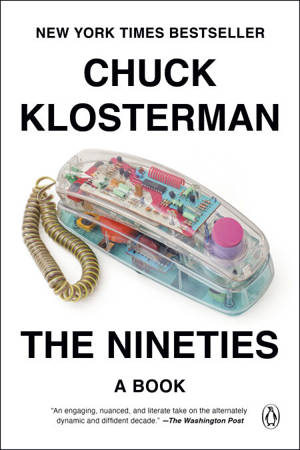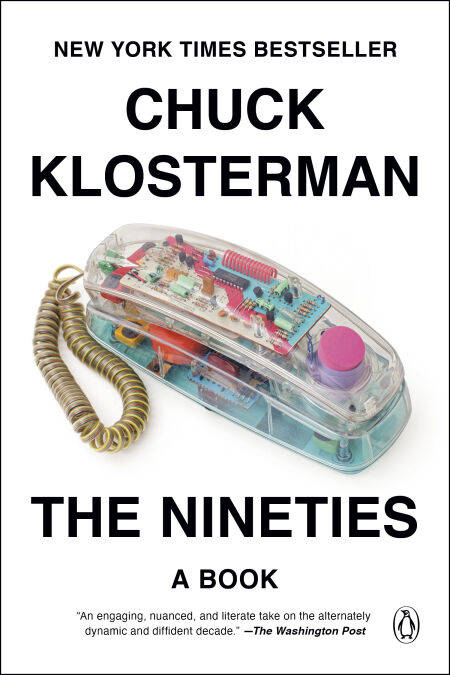
- Afhalen na 1 uur in een winkel met voorraad
- Gratis thuislevering in België vanaf € 30
- Ruim aanbod met 7 miljoen producten
- Afhalen na 1 uur in een winkel met voorraad
- Gratis thuislevering in België vanaf € 30
- Ruim aanbod met 7 miljoen producten
Zoeken
Omschrijving
An instant New York Times bestseller!
“Informative, endlessly entertaining.”—BuzzFeed
“Generation X’s definitive chronicler of culture.”—GQ
From the author of But What If We’re Wrong comes an insightful, funny reckoning with a pivotal decade
It was long ago, but not as long as it seems: The Berlin Wall fell and the Twin Towers collapsed. In between, one presidential election was allegedly decided by Ross Perot while another was plausibly decided by Ralph Nader. Landlines fell to cell phones, the internet exploded, and pop culture accelerated without the aid of technology that remembered everything. It was the last era with a real mainstream to either identify with or oppose. The ’90s brought about a revolution in the human condition, and a shift in consciousness, that we’re still struggling to understand. Happily, Chuck Klosterman is more than up to the job.
In The Nineties, Klosterman dissects the film, the music, the sports, the TV, the pre-9/11 politics, the changes regarding race and class and sexuality, the yin/yang of Oprah and Alan Greenspan, and (almost) everything else. The result is a multidimensional masterpiece, a work of synthesis so smart and delightful that future historians might well refer to this entire period as Klostermanian.
“Informative, endlessly entertaining.”—BuzzFeed
“Generation X’s definitive chronicler of culture.”—GQ
From the author of But What If We’re Wrong comes an insightful, funny reckoning with a pivotal decade
It was long ago, but not as long as it seems: The Berlin Wall fell and the Twin Towers collapsed. In between, one presidential election was allegedly decided by Ross Perot while another was plausibly decided by Ralph Nader. Landlines fell to cell phones, the internet exploded, and pop culture accelerated without the aid of technology that remembered everything. It was the last era with a real mainstream to either identify with or oppose. The ’90s brought about a revolution in the human condition, and a shift in consciousness, that we’re still struggling to understand. Happily, Chuck Klosterman is more than up to the job.
In The Nineties, Klosterman dissects the film, the music, the sports, the TV, the pre-9/11 politics, the changes regarding race and class and sexuality, the yin/yang of Oprah and Alan Greenspan, and (almost) everything else. The result is a multidimensional masterpiece, a work of synthesis so smart and delightful that future historians might well refer to this entire period as Klostermanian.
Specificaties
Betrokkenen
- Auteur(s):
- Uitgeverij:
Inhoud
- Aantal bladzijden:
- 384
- Taal:
- Engels
Eigenschappen
- Productcode (EAN):
- 9780735217973
- Verschijningsdatum:
- 7/02/2022
- Uitvoering:
- E-book
- Beveiligd met:
- Adobe DRM
- Formaat:
- ePub

Alleen bij Standaard Boekhandel
+ 6 punten op je klantenkaart van Standaard Boekhandel
Beoordelingen
We publiceren alleen reviews die voldoen aan de voorwaarden voor reviews. Bekijk onze voorwaarden voor reviews.







